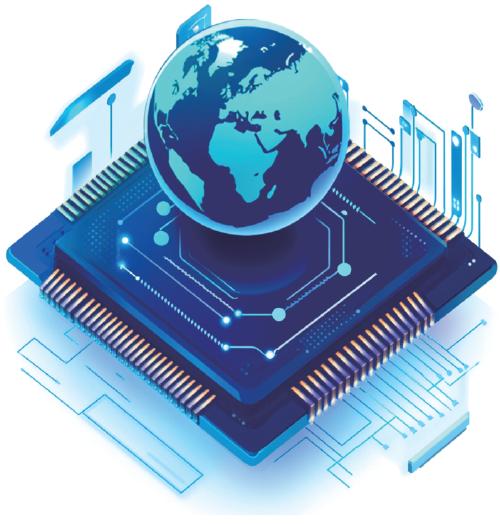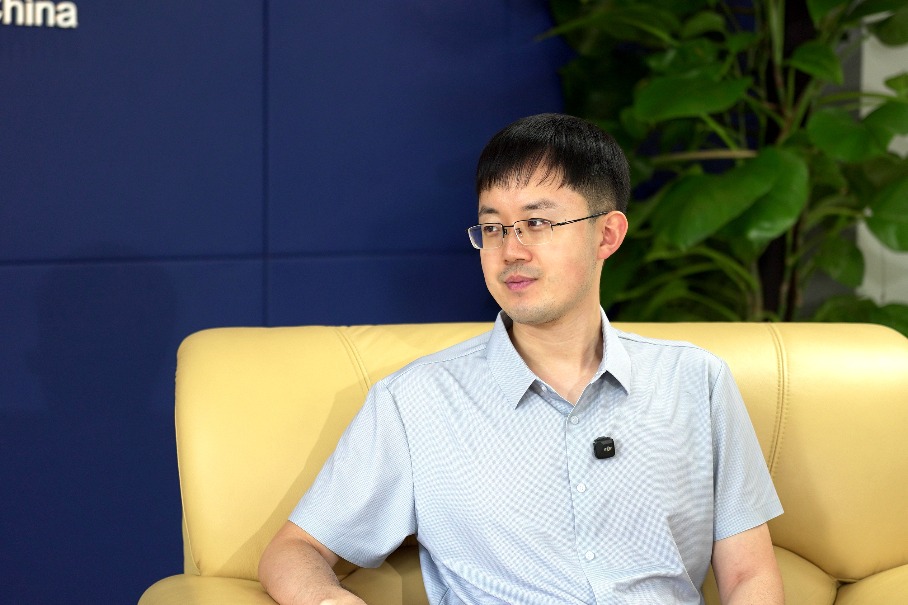Battle lines drawn
US high-tech policy targeting China set to be powered up in Trump's second term


The launch of DeepSeek caused a stir in the industry and quickly led to an investigation by the White House into its "national security implications", reflecting the high alertness of the United States to China's progress in developing artificial intelligence. After Donald Trump's return to power, high-tech will continue to be the main battleground for US strategic competition with China, and the Sino-US technological rivalry will become more complex. In this context, Trump's second-term tech policy is expected to present the following characteristics.
First, the "officialization" of cryptocurrency trading will be encouraged, with the aim of making the US "the crypto capital of the planet". Trump once opposed cryptocurrencies, but his stance has been changed by investment returns, team advice and support from industry giants during his election campaign. At the beginning of his second term, Trump formed a "mining-friendly" team — his nominees for Commissioner of the Securities and Exchange Commission Paul Atkins and Chairman of the Council of Economic Advisers Stephen Miran are both Bitcoin advocates. He also established the Presidential Council of Advisers for Digital Assets (also known as the Crypto Council) to develop a legal framework for the industry. In addition, during Trump's campaign, one of Trump's promises was to create a "strategic Bitcoin reserve "similar to the Strategic Petroleum Reserve.
Second, Trump's policy will "maximize" the competitive advantage of AI while "minimizing" regulatory oversight. On the one hand, he will further link the technological advantages of AI to national security issues, leveraging the strength of Silicon Valley. On Jan 21, Trump announced the "Stargate Project" in collaboration with companies such as OpenAI, SoftBank and Oracle, planning to invest $500 billion in US AI infrastructure over the next four years to outcompete rivals in this crucial technology. The launch of Chinese self-developed models such as DeepSeek has subverted the US' AI development path that relies on high computing power and heavy investment, bringing great competitive pressure for US companies and urging Washington to reevaluate its technology containment strategy toward China. Trump may also restrict exports of Nvidia's H20 chips, plug loopholes in the current control system regarding remote access, enhance the functions of the Department of Commerce's Bureau of Industry and Security, and boost its regulatory capacity over the export of related technologies.
On the other hand, compared with Joe Biden's emphasis on the risks and regulation of AI, Trump will roll back or freeze the current US' AI regulatory measures. On his first day in office, Trump fulfilled his campaign promise to repeal Biden's executive order on "Safe, Secure, and Trustworthy Development and Use of AI". Under the Republican leadership, the US Congress is also highly likely to block the formation of proposals such as the "AI Advancement and Reliability Act of 2024" (HR9497) and the "Future of AI Innovation Act of 2024" (S4178).
Third, the "domestication" of semiconductor production will speed up. Trump slammed the CHIPS and Science Act of 2022 ahead of the election, criticizing sending billions of taxpayer dollars to "rich companies". Instead, he suggested replacing the subsidy policy with tariffs on imported chips. His administration is also likely to coerce foreign chip manufacturers to invest and build factories in the US.
Fourth, "selective" antitrust battles will be launched. He initiated antitrust investigations and lawsuits against tech giants Meta, Amazon, Apple and Google, and blocked the acquisition deal between AT&T and Time Warner in his previous term.
Competing with China and suppressing its technology development will likely continue to be one of the top priorities of Trump's foreign policy. Unlike the Biden administration, the Trump government will not only emphasize competition with China but also raise tariffs on other countries, even its allies.
Next, the US has been escalating restrictions on technology exports, especially the ongoing construction of a "moat" around chip technology and intellectual property. These measures may stimulate domestic Chinese companies' innovation to break through technological bottlenecks and hardware constraints due to temporary scarcity of high-end chips in China.
Then, it may use antitrust battles or national security as pretexts to force the breakup or acquisition of Chinese tech companies in the US, especially targeting Chinese-funded e-commerce platforms represented by Temu and Shein.
Finally, Trump's inclinations to prioritize "America First" policy over regulation, will also complicate the international environment for China's technological progress and governance cooperation. The process of establishing global standards and governance frameworks for AI and other fields is likely to slow down, leading to rising risks associated with the application and development of various emerging technologies.
To address the aforementioned challenges, China should adopt multilevel and more flexible response strategies. The first is to further optimize the domestic science and technology system. On the one hand, efforts should be concentrated on tackling core technologies and enhancing the independent research and self-sufficiency of key technologies. On the other hand, small and medium-sized enterprises can be encouraged to take DeepSeek's success as a reference and explore the potential of functional AI based on the existing hardware available. The second is to accelerate the adjustment of the import and export and supply chain layout, reinforce economic ties with Global South countries and the Belt and Road countries, strengthen dialogue with countries or enterprises at key supply nodes, and jointly assess the global supply chain risks created by US tech policy. The third is to widely seek cooperation from the international community to help establish and optimize the international sci-tech governance system.
Sun Chenghao is an associate research fellow at the Center for International Security and Strategy at Tsinghua University. Wang Yexu is a graduate student at China Foreign Affairs University. The authors contributed this article to China Watch, a think tank powered by China Daily.
The views do not necessarily reflect those of China Daily.
Contact the editor at editor@chinawatch.cn.


































